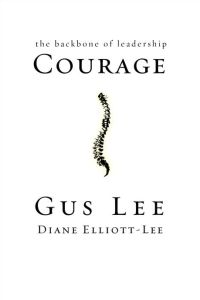Join getAbstract to access the summary!

Join getAbstract to access the summary!
Gus Lee and Diane Elliott-Lee
Courage
The Backbone of Leadership
Jossey-Bass, 2006
What's inside?
To be a great leader, you need the courage of your ethical convictions, in spite of fear. Brace yourself to be your best.
Recommendation
Corporate employees and managers should take a stand against unethical behavior, but that requires the courage to live, work and lead in congruence with your highest values. Author Gus Lee offers a "primer" on courage, including how it shapes decision making, how leaders can demonstrate it in their work, and how you and your employees can learn courage, and use it to support each other and to build moral businesses. To illustrate ethical behavior, Lee discusses case histories of individual courage in corporate life. His discussion is sometimes repetitious, and the vignettes are occasionally confusing, since he may refer back to examples he presented many chapters ago. Despite such flaws, these accounts offer key lessons. getAbstract believes that executives and managers can learn about principled action - and can reinforce it among their subordinates - by reading Lee’s book and passing it along.
Summary
About the Authors
Gus Lee is the author of China Boy, and an expert on leadership and ethics. He is on the adjunct staff at the Center for Creative Leadership and the U.S. Justice Department. Diane Elliott-Lee is a clinical nurse specialist.
















Comment on this summary